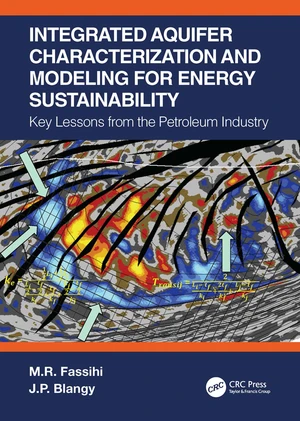The greatest challenge facing humanity today is the transition to a more sustainable energy infrastructure while reducing greenhouse gas emissions. Meeting this challenge will require a diversified array of solutions spanning across multiple industries. One of the solutions rising to the fore is the potential to rapidly build out carbon sequestration, which involves the removal of CO2 from the atmosphere and its storage in the subsurface. Integrated Aquifer Characterization and Modeling for Energy Sustainability: Key Lessons from the Petroleum Industry provides a comprehensive and practical technical guide into the potential that aquifers hold as sites for carbon and energy storage. Aquifers occupy a significant part of the Earthâs available volume in the subsurface and thus hold immense potential as sites for carbon storage. Many aquifers have been studied extensively as part of oil and gas energy development projects and, as such, they represent an opportunity to sequester carbon within existing areas of infrastructure that have already been impacted by, and integrated into, an inherited energy framework. Moreover, future efforts to reconfigure the landscape of our national and global energy systems can extract valuable lessons from this existing trove of data and expertise. From a multidisciplinary perspective, this book provides a valuable and up-to-date overview of how we can draw on the wealth of existing technologies and data deployed by the petroleum industry in the transition to a more sustainable future. Integrated Aquifer Characterization and Modeling for Energy Sustainability will be of value to academic, professional and business audiences who wish to evaluate the potential underground storage of carbon and/or energy, and for policy makers in developing the right policy tools to further the goals of a sustainable energy transition.
Price history
Dec 28, 2022
€97.25

